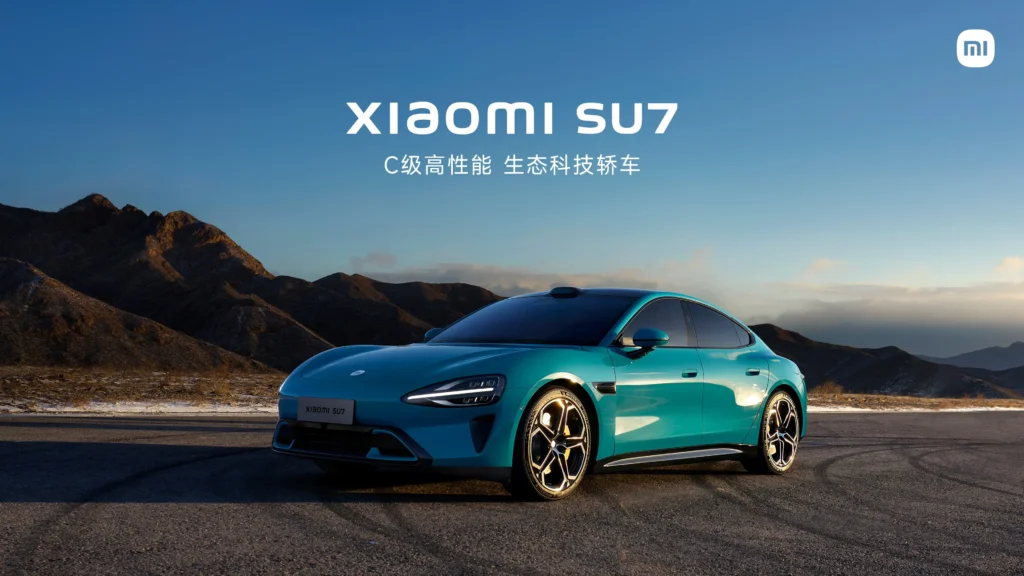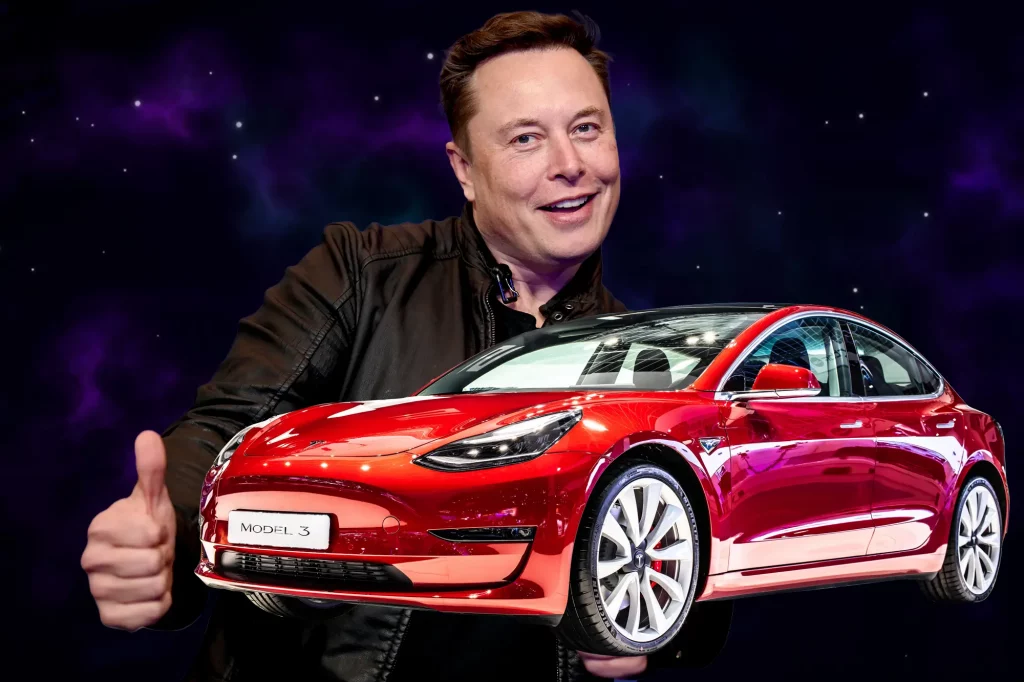Xiaomi, the Chinese smartphone maker, has recently introduced its inaugural electric vehicle (EV) and is now accepting orders.
At the ceremony, technology firm CEO Lei Jun said that the basic SU7 would cost 215,900 yuan ($29,872; £23,663) and the Max version 299,900. The company reported receiving more than 50,000 orders in just 27 minutes after sales began.


Xiaomi’s foray into the electric car market coincides with a period of sluggish sales growth worldwide, leading to intense competition on pricing. The move puts the technology giant in direct competition with EV rivals such as Tesla and BYD. The price of Tesla’s Model 3 in China starts at 245,900 yuan.
Mr. Lei compares the SU7 to the Taycan and Panamera. A minimum range of 700km (435 miles) is expected, surpassing the Tesla Model 3’s 567km. The firm is optimistic that the SU7’s shared operating system with its phones, laptops, and other devices will be attractive to current customers.
Xiaomi holds the position of the third-largest seller of smartphones globally, boasting a market share of approximately 12%, as reported by research firm Counterpoint. The SU7, which Xiaomi has been teasing since last year, has garnered attention for its striking resemblance to Porsche’s Taycan and Panamera sports car models.
A Beijing facility of BAIC Group, a state-owned car manufacturer, will produce up to 200,000 vehicles annually. “Reaching this point is already quite impressive, but the real success lies in proving that there is a demand for Xiaomi as a smart EVs brand,” stated Bill Russo of Automobility in an interview with the BBC.
Apple Cancels Electric Car Project: Tech Giants Diverge on EV Market Potential
Last month, reports stated that Apple, known for its iPhone, decided to cancel its plans to build an electric vehicle. This highlights the difficulties that technology companies encounter when venturing into the electric car industry. According to Mr Russo, Xiaomi’s decision to enter the car market demonstrates their strong belief in the relevance of their brand in China. On the other hand, Apple does not perceive enough potential in the EV market beyond China.
Read More: Building the World’s Most Powerful Open Source AI Model
Xiaomi has announced plans to allocate a significant amount of funding to its vehicle business over the next decade. “The Chinese EV market is highly developed and provides a stable ecosystem for EV manufacturers,” said Rystad Energy analyst Abhishek Murali. “As an illustration, the battery supply chain exhibits remarkable strength, while the charging network in the country is expanding to keep pace with the increasing demand for EVs.”
Xiaomi’s entry into the car market coincides with the escalating price competition in China’s EV industry.
Tesla, led by the wealthy entrepreneur Elon Musk, has significantly reduced the prices of its cars in China over the past few months. This move comes as local competitors, including the leading electric vehicle manufacturer BYD, have also lowered their prices.
Xiaomi has managed to gain approval from authorities to enter the already crowded world’s biggest car market. This is quite an achievement considering the efforts of officials to control the influx of new players.
Earlier this week, BYD announced that they had achieved record annual profits. However, they also mentioned that their growth had slowed towards the end of last year.
Nio Lowers Deliveries, Tesla Report Looms: Uncertainty in the China EV Market
On Wednesday, Nio, the electric car manufacturer based in Shanghai, revised its first-quarter delivery forecast due to a decrease in consumer spending amidst China’s weakening economic growth. Tesla, the leading American electric vehicle firm, will reveal its first-quarter 2024 delivery results next week.
Meanwhile, governments worldwide are resisting the influx of electric vehicles manufactured abroad.
Beijing took action on Tuesday by initiating dispute settlement proceedings against the US at the World Trade Organization. Their goal was to challenge “discriminatory subsidies” in the US Inflation Reduction Act.
Meanwhile, the European Union has initiated an investigation to determine if Chinese government subsidies have provided an unfair advantage to electric car manufacturers in China, potentially undercutting European-made models.




